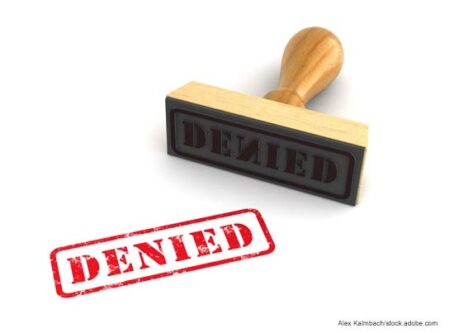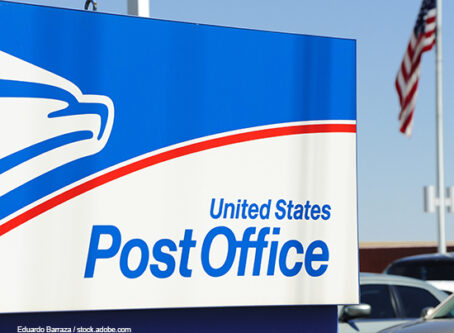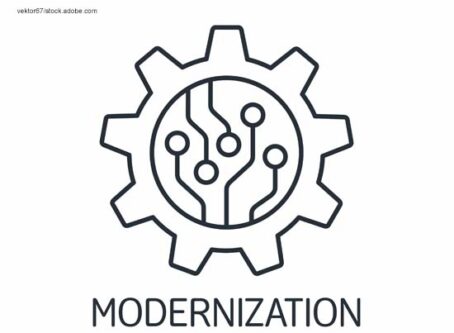Women of Trucking Advisory Board’s final meeting sparks FLSA debate
The possible removal of the trucking industry’s exemption from the Fair Labor Standards Act of 1938 was a point of contention during the final meeting of the Women of Trucking Advisory Board.
On Monday, Nov. 13, the board’s full panel of members met to finalize the recommendations that will be included in their report to the Federal Motor Carrier Safety Administration.
Prior to Monday’s meeting, members of the Report Drafting Subcommittee met to compile a list of prioritized notes that would be reviewed by the group before being approved. Included in the first draft of WOTAB’s “Essential Statements” was strong language in support of removing the industry’s exemption to FLSA.
“Remove industry exemption from FLSA,” the subcommittee’s first draft read. “The lack of FLSA applicability to trucking is a barrier for women to become drivers, making it hard to support their families and earn a fair wage with basic protections.”
Initially, no one on the 15-member board protested the comment, and the group moved on to the next bullet point. That’s when one board member chimed in to have her objection noted.
That objection came from Alex Rosen, director of legislative affairs with the American Trucking Associations.
“I think removing the industry exemption from FLSA upends 90 years of labor law, and I don’t think that the impact necessarily reflects the intent with that type of change,” Rosen said. “And it would leave out a lot of female entrepreneurs and independent owner-operators.”
Rosen argued that rather than helping increase the compensation for truckers, there was a “high chance” that removing the FLSA exemption would have a negative impact on wages. She contended that because owner-operators are paid by the load and/or mile, adding overtime to the equation “upends almost a century of those payment arrangements.”
Kellylynn McLaughlin, a driver for Clear Harbor and member of WOTAB’s Report Drafting Subcommittee, pushed back against Rosen, pointing out that removing the exemption relates to company drivers and not owner-operators.
Furthermore, McLaughlin said that a major complaint of those in the industry is the lack of compensation for detention time, with many drivers working 60 to 70 hours per week.
“It’s time to take a good look at our protections and that we receive the same protections as other workers in the workforce,” McLaughlin said.
In response, Rosen argued that drivers who are subject to FLSA still are unlikely to receive overtime pay, saying companies will adjust their compensation rates to accommodate for the increase and adding that some truckers may even lose pay because employers would adjust to maintain their current cost of operation.
“Upending the way that overtime works does not necessarily mean that overtime will be compensated in a different framework,” Rosen said.
Rosen added that she believes removing the FLSA exemption could have “devastating consequences” and questioned whether the end result would be what the board set out to achieve.
“The group felt that just because it’s been done that way for many, many years, doesn’t mean that it’s the best way to carry this industry forward,” McLaughlin countered. “Especially if we’re trying to increase the working conditions for women in this industry… if we increase the working conditions for women, we improve the working conditions for every driver.”
That sentiment is shared by the Owner-Operator Independent Drivers Association, which recently called upon its over 150,000 members to support the Guaranteeing Overtime for Truckers Act.
The bill, which was introduced in the House and Senate on Thursday, Nov. 9., would amend FLSA to require that truckers receive overtime compensation when they work more than 40 hours in a week.
Bryce Mongeon, director of legislative affairs for OOIDA, said that while there is some credence to the idea that carriers would adjust compensation to offset costs, removing the industry’s exemption from FLSA would be an overall positive.
“Certainly we think there’s a chance that drivers will get paid overtime. But the bottom line is, this will force everyone else in the supply chain to finally value a driver’s time. They don’t just get to use it up for free when a driver is waiting to be loaded or unloaded,” Mongeon told Land Line. “It’s impossible with any piece of legislation to say with certainty what the exact outcome will be, but we know for sure that it will finally force everybody to value a driver’s time. And while that directly affects employee drivers, it’s important because it will ultimately benefit all drivers, because a rising tide lifts all boats.”
After Rosen’s objection, other members of the board suggested softening the language of the original draft.
Laura Duryea, board member and manager of recruiting, retention and driver development with Boyle Transportation, suggested the wording be changed to “review” the impact the FLSA exemption has on the industry.
Following the discussion, the board’s language on the matter in the final draft had decidedly less bite.
“Review and research the potential for an industry exemption from FLSA to determine the degree to which the lack of FLSA applicability to trucking is a barrier for women to become drivers, making it hard to support their families and earn a fair wage with basic protections,” the board’s final draft read.
Other points on the final draft of WOTAB’s “Essential Statements” included:
- As the industry evolves, elevate women’s voices in the CMV industry.
- Bring diverse women’s CMV organizations and associations to the decision-making table.
- Increase women’s representation on governmental advisory boards and other stakeholder engagement efforts related to the CMV industry.
- Recognize, promote and encourage women to join all aspects of the transportation industry.
- Collaborate with the motor coach industry and the broader CMV industry to facilitate opportunities for women.
- Create a centralized web-based platform for women and associations in the industry.
- Encourage DOT and DOL to communicate through diverse methods trucking’s essential role in the American economy, so that its status is reflected in support from state and local government.
- Educate men on the challenges faced by women in the industry and encourage them to become allies for women in the industry.
FMCSA Administrator Robin Hutcheson joined the virtual meeting to thank the members of the board for their service over the past year, saying she gets a little “misty-eyed” when she thinks about the work of the group.
“I want to tell you that you’ve inspired me to – when I have the bully pulpit – speak with honesty and speak truth to the issues that you’ve raised,” Hutcheson said.
The administrator added that the agency already has begun to address some of the issues raised by WOTAB, notably establishing a safety hotline for female drivers to call when they feel that they are having an issue.
Hutchison applauded board members for being direct and honest about their concerns and said she would continue to offer her support.
“This is recruitment. This is retention. This is the training that women need to stay in the industry,” she said. “It’s a key point of your discussion, and we are laser-focused on it: What can we do from the seats that we are sitting in? I’ve heard you loud and clear that you need my voice, and I intend to use it for as long as I can from the seat that I’m in.”
With the final draft approved, the board chair now will submit the report to FMCSA. The agency then will have one year to deliver its own report to Congress detailing the findings of the board, along with “any actions taken by the Administrator to adopt the recommendations, or an explanation of the reasons for not adopting the recommendations.” LL









